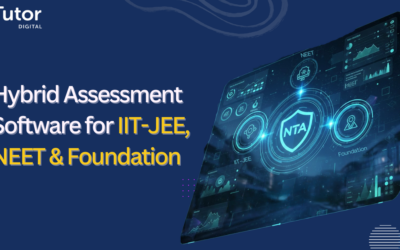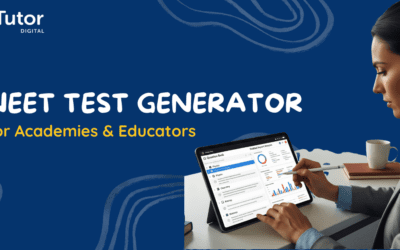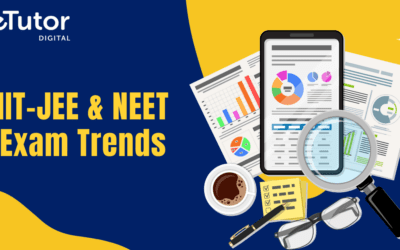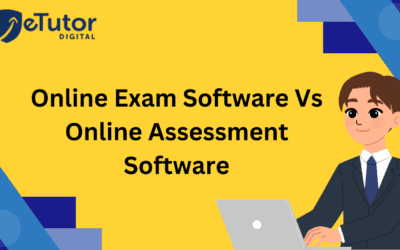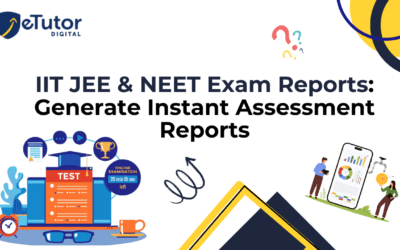Best online question paper generator for IIT-JEE & NEET
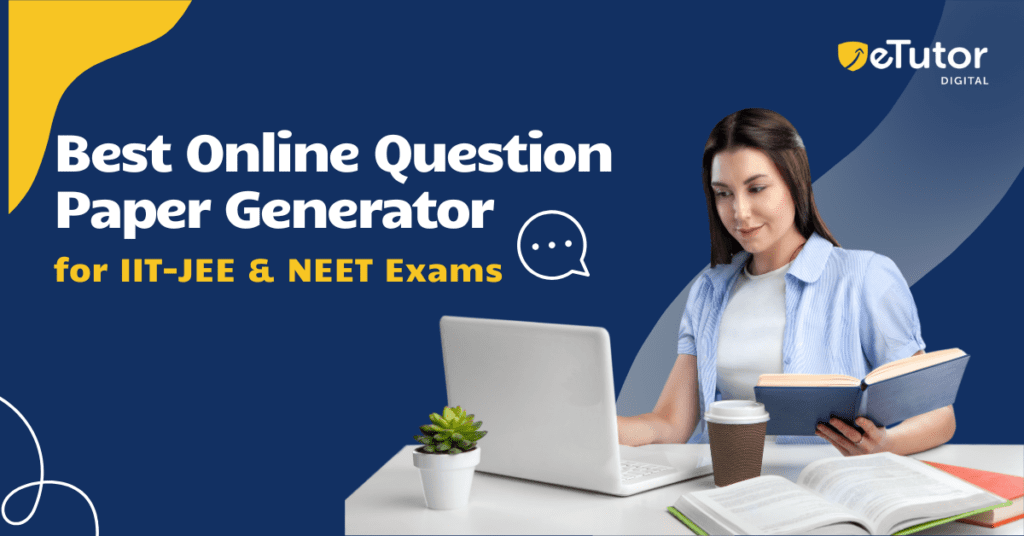
Table of Contents
ToggleIntroduction
Modernize your institution’s assessment process with the eTutor Online Question Paper Generator for IIT-JEE and NEET. Our JEE and NEET custom test generator software helps educators effortlessly generate automated test papers online.
eTutor Digital eliminates institutions’ workloads by offering affordable IIT JEE and NEET test generator software. It has a wide range of features along with the generation of question papers.
Let’s see how eTutor NEET & IIT JEE test generator software works . Along with that, do explore its main characteristics below.
Online Question Paper Generator for IIT JEE & NEET Exams
Looking for smarter ways to create Online Practice Tests for IIT JEE and NEET? eTutor AI-Based Test Generator allows educators to generate topic-level and difficulty-wise JEE Mains, JEE Advanced, and NEET Test Papers. It ensures students challenge themselves in every test and score better marks in the final test.
Also, with advanced features like a custom test generator for NEET & JEE, topic-wise JEE & NEET mock test generator, sample question paper download, your students can get more support to practice.
JEE Main Question Paper Generation Process
The following three simple approaches are useful for generating JEE Main Question Papers with eTutor Digital JEE Mains Test Generator:
1. Using eTutor’s comprehensive question bank.
2. With eTutor’s Auto Test Generation feature.
3. Leveraging our streamlined Bulk Question Upload feature.
Now, you can easily generate the JEE Main Test Paper online. For a detailed JEE and NEET Test Paper Generation process, check the attached blog clearly: JEE Main test creation process using eTutor Digital Assessment Software.
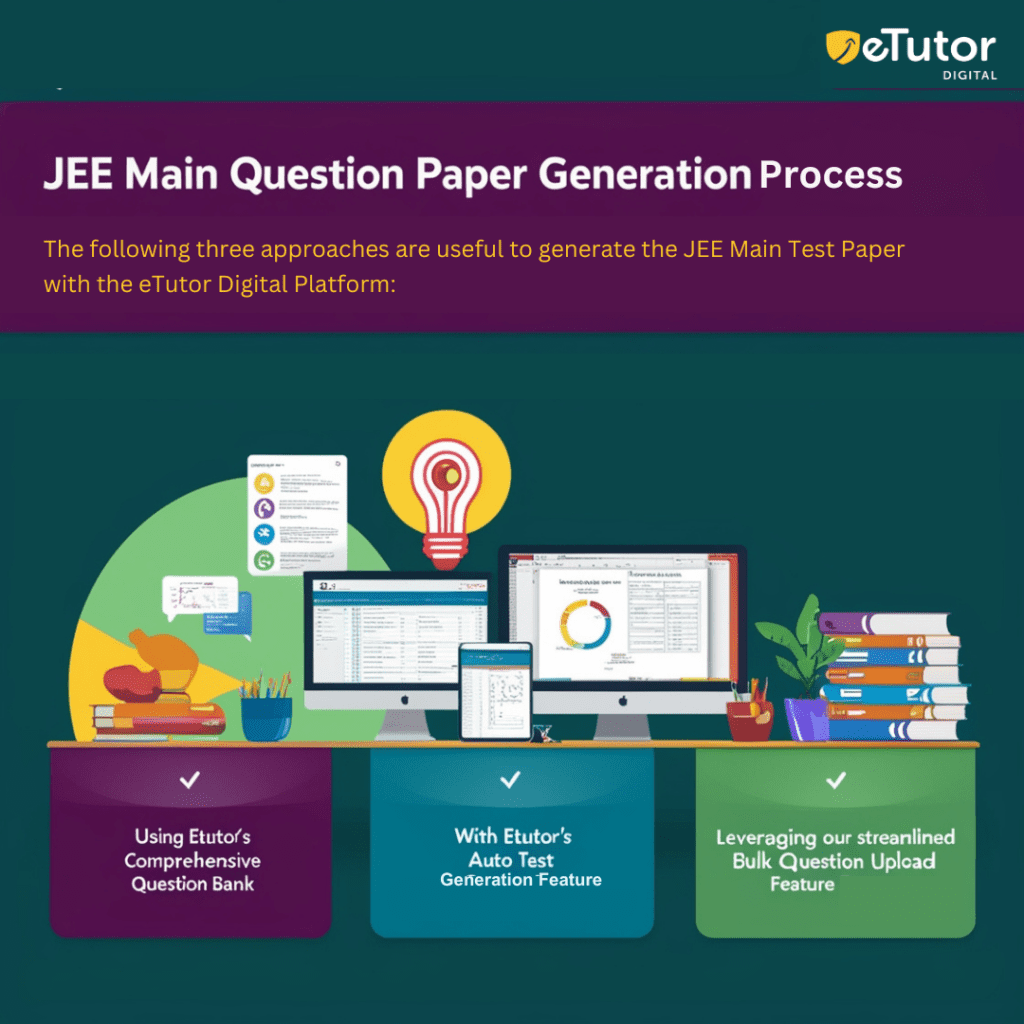
NEET Question Paper Generation & OMR-Based Offline Assessment Process
Our NEET Paper Generator works as eTutor’s JEE Question Paper Generator. Institutions can create unlimited Question Papers using the NEET Test Generator in three ways. They are:
1. Leveraging the extensive question bank of eTutor.
2. Utilizing eTutor’s Auto Test Generation feature.
3. Uploading the personalized questions in different formats such as Excel, PDF, or Word.
The above three methods offered by eTutor NEET Test Paper Generator software help educators create online test papers. As NEET tests are held offline, we support teachers/institutions in conducting offline assessments for NEET exams.
Wondering how OMR-Based Test Generator & Assessment for NEET works? Have a glance at the following steps of the NEET Offline Exam Conduction Process:
1. After generating the NEET test papers, click the Test List option.
2. Download & print the generated online NEET question paper in PDF format by hitting the Print Test button.
3. Tap the Download OMR button from the test list menu and print the OMR sheets in PDF format for offline exam conduction.
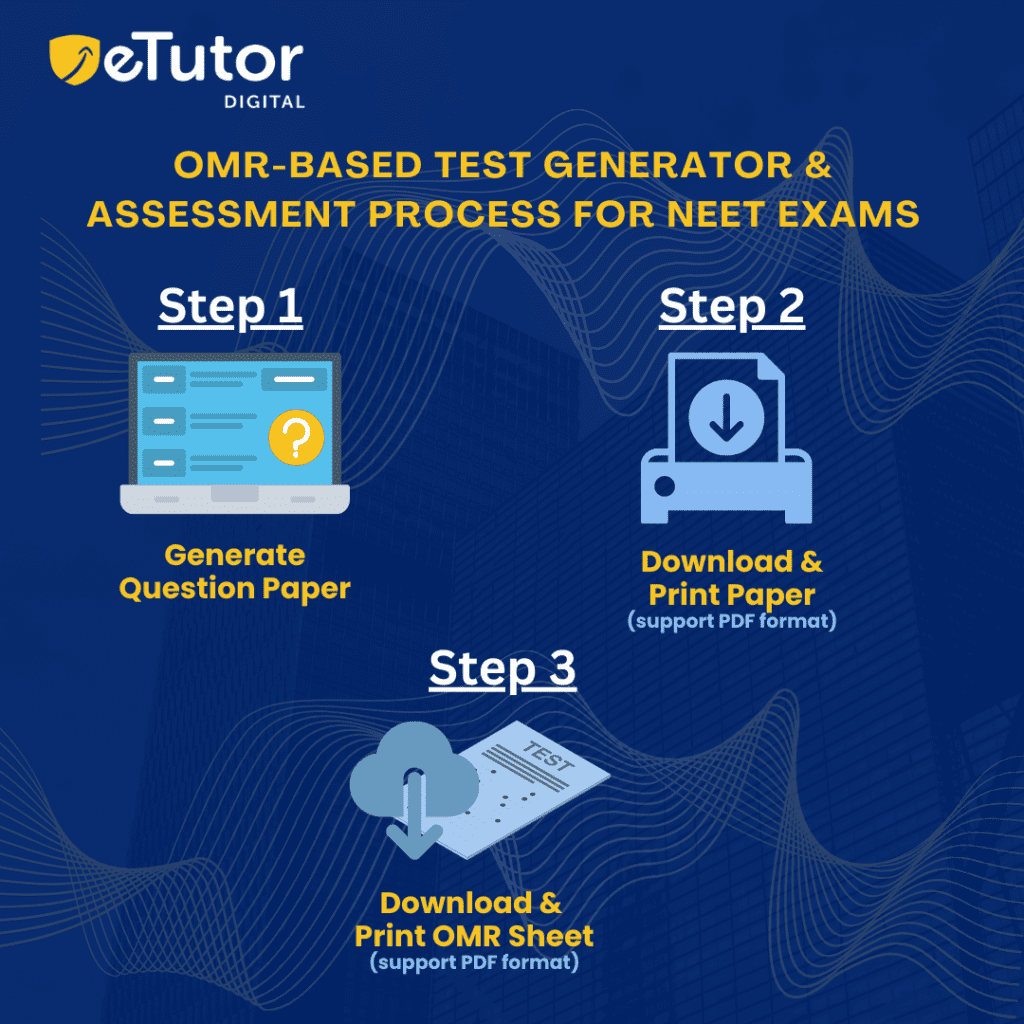
Also, eTutor supports hybrid assessments using extensive AI-driven analytics reports. You can obtain complete Score, Speed, Accuracy, Chapter-wise Performance Reports, subject-wise details, and student strengths & weaknesses in each chapter.
For More Information, Just Hit on This JEE Main Test Analysis Report PDF
Sample Question Paper Download for IIT JEE & NEET
Streamline your assessment planning with the provided downloadable AI-generated IIT-JEE Mains, JEE Advanced, and NEET sample question papers PDFs. Also, educators can explore how eTutor’s AI-based Test Generator works, categorized topic-wise and difficulty-wise for deeper understanding.
Start downloading the sample JEE & NEET test papers, as they are perfect for academic teams evaluating test formats, content structure, and smart delivery, before creating full-fledged custom assessments.
Key Features of eTutor JEE & NEET Question Paper Generator Software
eTutor assessment software is a leading platform for the educational industry. It helps reduce an educator’s assessment workload & focus on what matters most.
Our online question paper generator software has various advantages along with paper generation. Educators can get familiar with the essential features below:
eTutor Question Paper Generator Software provides easy, medium, and difficult-level single correct MCQs. Users can find Single Correct MCQs in Chapter-wise and Topic-wise categories. Hence, aspirants can practice completely in each subject/topic using the eTutor platform.
• Foundation (Easy) level MCQs challenge students’ basic knowledge and help in their exam preparation.
• Conceptual (Medium) level MCQs assist in polishing their understanding and analytical skills.
• Application (Difficult) level MCQs cover complex questions to test deeper subject knowledge. Prepares students for the intricacies of competitive exams.
IIT-JEE (Main & Advanced) and NEET exams contain diverse question types. Our assessment software supports generating JEE & NEET test papers as per NTA-Aligned question types.
So, let’s understand the JEE and NEET question types.
JEE Main Question Types
There are two types of questions aligned in the JEE Mains Question Paper. They are:
1. Multiple Choice Questions (MCQs)
In this type of question, students are asked to select the correct answer from the following list of options.
Example:
1. Question: Which of the following elements has the highest electronegativity?
a) Carbon
b) Oxygen
c) Fluorine
d) Neon
Correct Answer: c) Fluorine
2. Integer Type Questions
Students are asked to select the correct answer from the following list of options

JEE Advanced Question Types
In the JEE Advanced question paper, there are various types of questions included such as:
1. Single Correct Multiple-Choice Questions (MCQs)
2. Multiple Correct Multiple-Choice Questions (MCQs)
3. Integer Type Questions
4. Linked Comprehension Question Type
5. Matrix Matching Question Type
NEET Question Types
NEET question types are primarily divided into two types of questions. These two question types check NEET applicants’ understanding, knowledge application & critical thinking skills. The following are the two primary question types:
1. Multiple Choice Questions (MCQs)
This MCQ type asks a question with a set of options, one or more of which may be the correct answer(s). Aspirants have to pick the correct answer from the given options.
Example:
Question: Which of the following elements is essential for chlorophyll synthesis in plants?
A) Nitrogen
B) Iron
C) Calcium
D) Magnesium
Correct Answer: D) Magnesium
2. Assertion & Reasoning (A&R)
A&R question type includes two statements – assertion and reasoning. Applicants must read both statements and examine whether the reasoning statement correctly explains the assertion statement.
Test-takers should select the correct option from the various correctness and relevance options combinations.
Example:
Assertion: An increase in temperature leads to an increase in the rate of diffusion.
Reasoning: Higher temperatures increase the kinetic energy of particles, leading to more frequent collisions and faster diffusion rates.
Options:
A) Both assertion and reasoning are correct, and the reasoning is the correct explanation for the assertion.
B) Both assertion and reasoning are correct, but the reasoning is not the correct explanation for the assertion.
C) Assertion is correct, but reasoning is incorrect.
D) Both assertion and reasoning are incorrect.
Correct Answer: Option A) Both assertion and reasoning are correct, and the reasoning is the correct explanation for the assertion.
Want to finish your IIT JEE & NEET Exam Paper Making Process in just 2 minutes? eTutor Digital Inbuilt Question Bank feature can do it for you. Our intuitive interface assists teachers in rapidly selecting the questions and custom JEE and NEET test papers.
eTutor Digital Software provides over 2,50,000 subject-wise, chapter-wise, and topic-wise questions with comprehensive solutions. Both institutions and students can enjoy eTutor NTA pattern-aligned question bank for IIT JEE & NEET Exams.
Every question bank repository consists of questions, answer keys, and Step-by-Step Detailed Solutions. Our software empowers students to understand the problem-solving process by offering step-by-step solutions.
Hence, eTutor Inbuilt Question Bank provides questions and the essential tools for self-assessment and understanding.
eTutor digital online question paper generator supports conducting exams in both online and offline models ie., hybrid model. This pioneering hybrid exam methodology offers flexibility and accessibility for many customers.
Our hybrid examination mode assessment benefits from two features Dual mode capability and versatility. For detailed information check this eTutor’s Digital Online & Offline Assessment Page.
With eTutor Digital AI-driven Student Performance Reports, educators can understand students’ scores, speed, and accuracy in every subject and chapter.
Our AI-powered real-time analysis report comes with various benefits, such as:
• Score Evaluation,
• Speed Assessment,
• Accuracy Insights,
• Chapter-wise Performance Report.
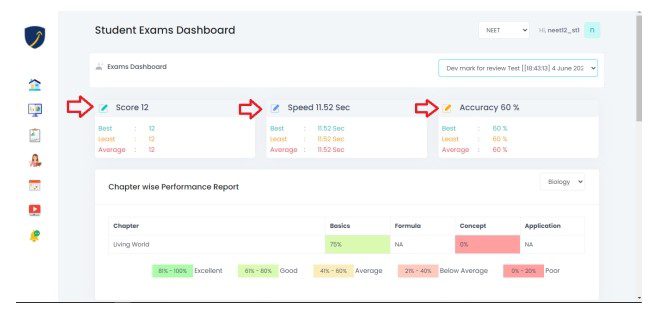
Subject-wise details
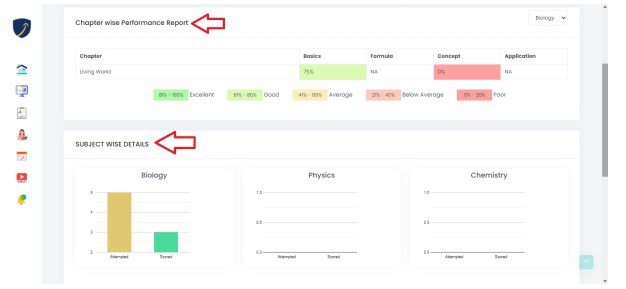
The eTutor AI-Based Performance Analysis Report is a standout feature that identifies areas for improvement and offers personalized guidance according to each student’s needs.
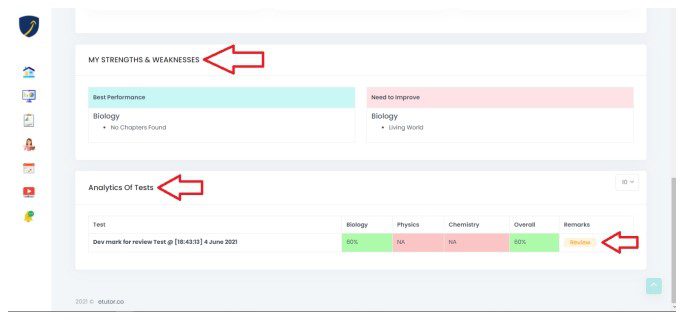
‘Want to empower educators and students to achieve academic excellence? Discover more about eTutor’s AI-powered Detailed Analytical Reports via the available link.
Discover How AI Can Revolutionize Your Teaching Strategies with eTutor Digital Assessment Software
eTutor Digital platform offers to craft custom question papers with their unique branding. It supports institutions embed their name, logo, and watermark on exam resources & documents.
By integrating white-labeled branding solution functionality, institutions can elevate their brand appearance professionally. If you need such functionality on your resources, reach out today!
Claim Your Customized White-Label Digital Assessment Platform Now!
Institutions can leverage eTutor online question paper generator software’s unlimited tests feature. It allows educators to create countless diverse tests that align with their learning objectives, focusing on specific chapters, topics, or difficulty levels.
Enjoy the freedom of unrestricted test generation and provide countless practice sessions to enhance your student’s performance.
Our online test generator software offers a dynamic learning experience to students. We made it possible by adding the relevant & updated NTA-Aligned NEET & IIT JEE Question Bank with over 2,50,000 questions.
eTutor’s Digital Software adapts new test pattern changes & offers a well-prepared question bank for JEE & NEET.
We assure delivering updated content based on new exam trends. Hence, educators can access these regularly added questions to generate JEE & NEET Tests.
Institutions can leverage eTutor online question paper generator software’s unlimited tests feature. It allows educators to create countless diverse tests that align with their learning objectives, focusing on specific chapters, topics, or difficulty levels.
Enjoy the freedom of unrestricted test generation and engage your students in countless practice sessions.
Conclusion
The best online question paper generator for IIT JEE & NEET – eTutor software is an indispensable tool in pursuing academic excellence. It helps institutes and teachers prepare students for NIT, IIT JEE Main, JEE Advance, and NEET exams & boost their rankings.
Its efficiency, versatility, and endorsement by numerous educational institutions position it as a valuable asset in exam preparation.
As this software continues to break barriers and redefine the conventional approach to question paper preparation, it is significantly poised to improve student outcomes in competitive exams.
Recent Posts
- NTA-Based Hybrid Assessment Software for IIT-JEE Mains, Advanced & NEET
- eTutor Offline Exam Software for IIT-JEE, NEET, and Foundation with Student Performance Analytics
- NEET Test Generator for Academies & K-12 Schools
- How School ERP Software Maximizes Productivity and Minimizes Cost
- How Does ERP Software for Schools Help Educators?

